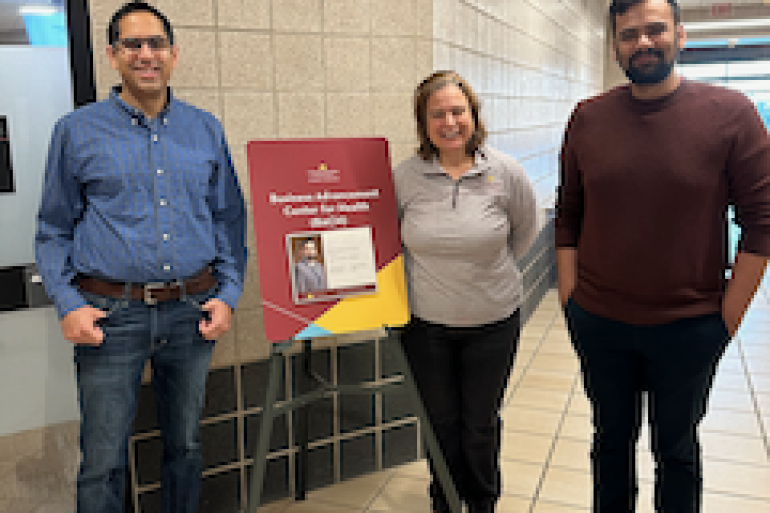Business Advancement Center for Health Research
The Business Advancement Center for Health's (BACH) research initiatives engage the community and industry, along with faculty and students, to co-create novel business-driven innovations. BACH's collaboration with faculty and industry leverages the Carlson School’s expertise across many departments on cutting-edge research and innovations in healthcare.
Key topics of interest include, but are not limited to:
- Value-based reimbursement and payment models
- Investment in the social well-being of individuals
- Organizational structures
- Quality innovation
BACH regularly features recent graduates and current doctoral students as they present their research in healthcare. This series encourages students, faculty, and industry experts to share insights and feedback on up and coming work.
Medical Reversals: De-Implementing Ineffective and Unsafe Treatments
National Institute of Health, Agency for Healthcare Research and Quality
Understanding whether and how robust clinical evidence is integrated into practice is critical from the perspectives of: a) improving patient safety and health outcomes; b) designing programs and policies to accelerate the use of high value, effective treatments and abandon less effective and harmful treatments; c) containing health care costs by allocating limited health care budgets to their most effective use. In most circumstances, physicians and healthcare delivery organizations (HCDOs) are the key agents in determining whether a patient receives a given medical treatment. However, physician and HCDO integration of clinical evidence into practice are not well studied or understood. In general, the term "integration of evidence into practice" could mean both the adoption of new treatments and the de-implementation of established treatments based on new evidence related to effectiveness or safety. In this proposal, we will focus on the latter. The primary focus of this research is to understand how physician networks, HCDOs, and the physician market environment influence the de-implementation of ineffective and unsafe treatments in practice. Read more about the project's specific aims and view the team's publications.
Social Bonds as a Pooled Financing Mechanism to Address Social Drivers of Health Equity
Robert Wood Johnson Foundation Systems for Action
The Business Advancement Center for Health’s initial research initiative is a three-year project awarded in November 2021 from the Robert Wood Johnson Foundation's Systems for Action program. It is focused on designing and evaluating a novel financial instrument to align Medicaid managed care organizations (MCOs) and establish sustainable funding for targeting social influencers of health (SIH), such as housing and food insecurity. This project will design and evaluate a social bond to align MCOs to efficiently invest in SIH needs and to curate long-term, sustainable funds that can be equitably distributed to the needed interventions. A social bond raises funds from investors to support projects that create demonstrable positive social impact and will improve allocation of resources that address racial and other dimensions of health equity so that interventions can reach all individuals in need of these critical services regardless of payer source.


